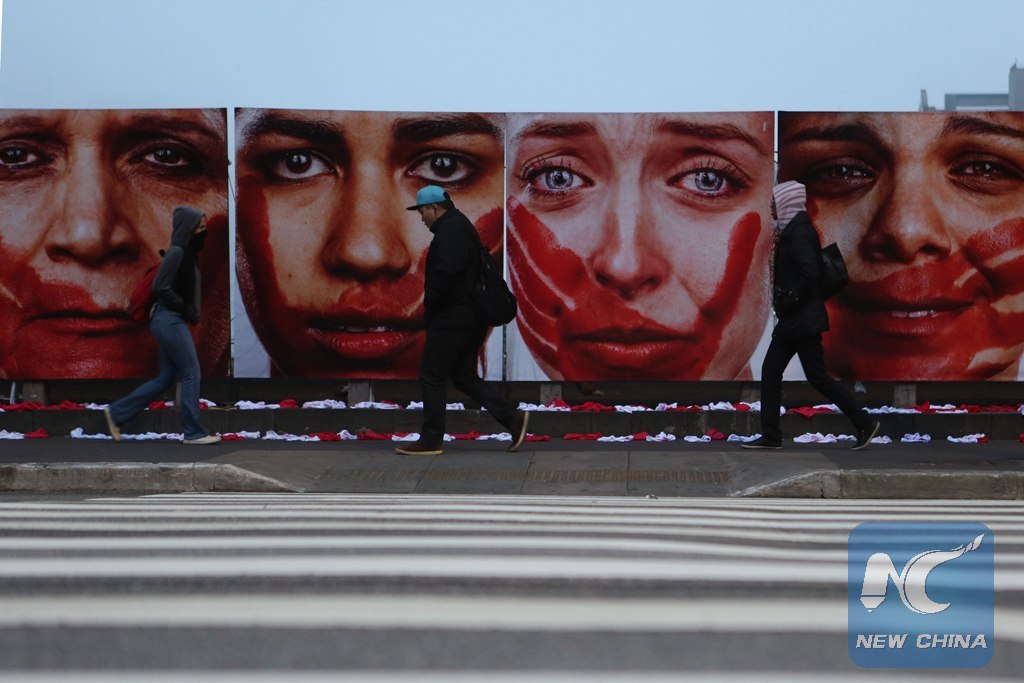A woman poses in front of banners with photographs shown outside the Sao Paulo Museum of Art during a protest against the rape, abuse and violence against women in Sao Paulo, Brazil, on June 10, 2016. The protest demanding an end to the violence against women, refered to the allegedly mass rape of a 16-year-old girl that occurred in Rio de Janeiro in May 2016. (Xinhua/Rahel Patrasso)
LA PAZ, Sept. 18 (Xinhua) -- Bolivia continues to see a high rate of femicides and gender violence despite the introduction of a law securing women's rights in 2013, due to delays in the judicial process and a lack of action to raise awareness about the problem.
A total of 67 femicides occurred in Bolivia between January and August. This period also saw 603 rapes, 589 cases of sexual abuse and 18,805 cases of domestic violence, said a report released Friday by the Observatory for the Fulfillment of Women's Rights.
The country's attorney general estimated that about 250 women were murdered between 2013 and 2015.
Bolivia promulgated the law to guarantee women a life free of violence in March 2013. The new law added the crime of femicide to the penal code for the first time, and making it punishable with 30 years in prison and no right of appeal, the highest sanction under Bolivian law.

People walk in front of banners with photographs shown outside the Sao Paulo Museum of Art (MASP, for its acronym in Spanish), during a protest against the rape, abuse and violence against women, organized by the Non-Governmental Organization "Rio de Paz" (River of Peace), in Sao Paulo, Brazil, on June 10, 2016. The protest demanding an end to the violence against women, refers to the allegedly mass rape of a 16-year-old girl that occurred in Rio de Janeiro on May 2016. (Xinhua/Rahel Patrasso)
Since the law came into force, around 250 cases of femicide have been tried, with 47 criminals sentenced to the maximum 30 years of imprisonment.
For Monica Novillo, executive secretary of Coordinadora de la Mujer, a private association seeking to combat gender violence, the delay in trials is a "cruel" element making women who have been assaulted have to wait, while those who have been killed "are no longer in this world to tell of the hell they lived."
She told Xinhua that the rate of the cases that have been brought to trial has been far too slow, urging the authorities to speed up the processing of the cases.
Novillo said that the violence is due to a number of factors, including a sexist society, outdated gender roles imposed on women, as well as broader political and structural problems.
"Violence against women is structural in our society and often degenerates into femicide. The high numbers are worrying," said the activist.
Griselda Sillerico from the attorney general's office said that "these terrible murders happened due to broad social tolerance of violence against women. It is preoccupying that these femicides are very high among younger women."
According to a UN Women report, Bolivia is the Latin American country that sees the highest level of physical violence against women and the second highest level of sexual violence after Haiti.


